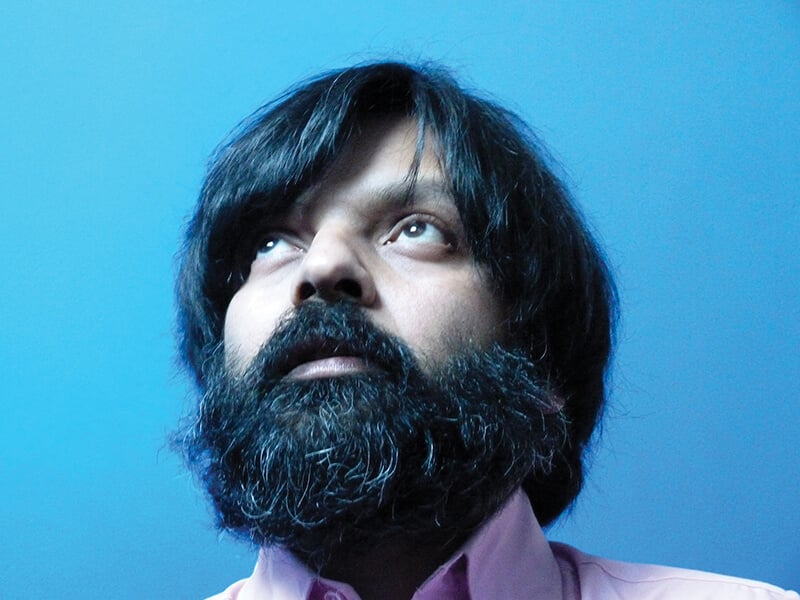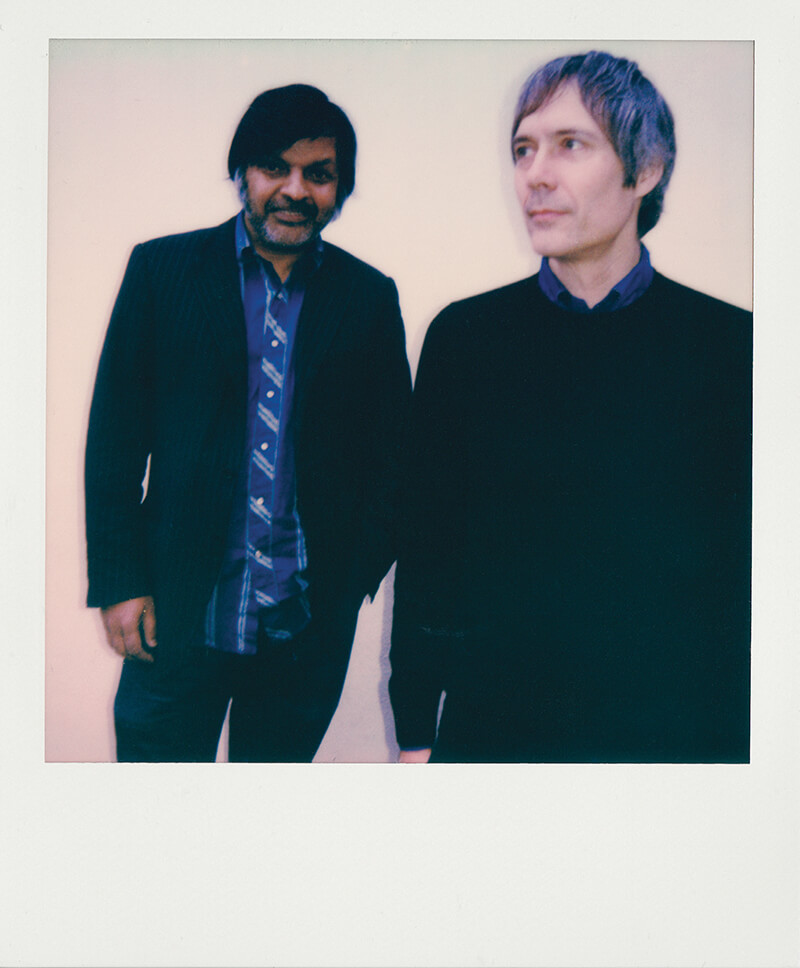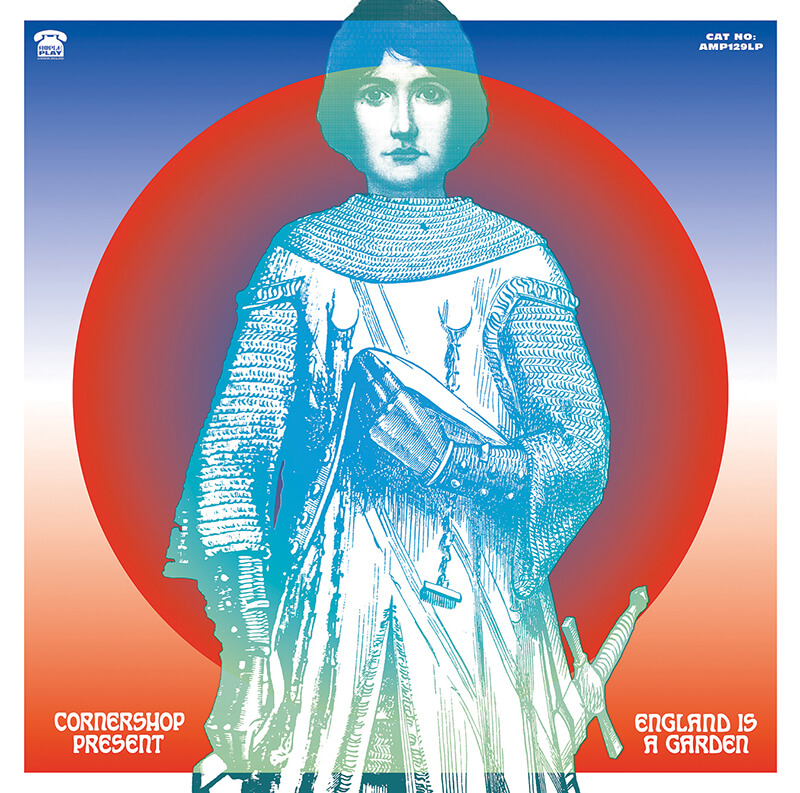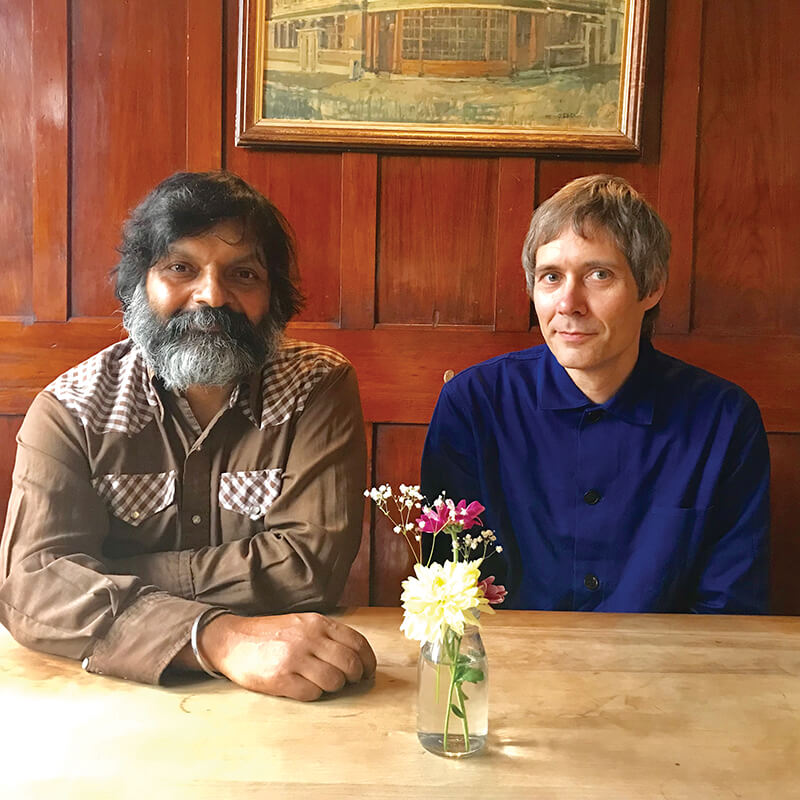TJINDER SINGH On Cornershop’s Latest LP, Managing His Own Label and Staying Focused in the time of COVID-19
Photos by Chris Almeida and Marie Remy
This year marks the 23rd anniversary of “Brimful of Asha,” one of the quintessential British pop songs of the 1990s (I do hesitate to actually lump it in with “Britpop,” as I feel that’s doing the song a disservice, but you can do what you like, dear reader). It landed on the shores of the States in spectacular fashion, complete with a colorful, retro-vibe video on MTV and a Fatboy Slim remix that remains a classic to this day. But if that’s all you know of Cornershop, the band, you owe it to yourself to seek out more from Tjinder Singh’s group of musical merrymakers. Much more than a mere one-hit-wonder, Cornershop has continued releasing some of the best pop-rock albums in the UK for the past 20+ years, and their new 2020 release, England is a Garden, might just be in the running for album of the year.
We recently spoke with Singh about the record, the pandemic, his label and what’s been going on with the group since “Brimful.”

There was a five-year gap between the new album, England is a Garden, and the last Cornershop record. Can you tell us what you’ve been up to these past few years?
We have never stopped as a group and have always worked hard over the long years. I went through a stage of not feeling too well – a sort of burnout, which meant I had no option but to slow right down. That was one reason to put out so many other artist’s albums on our own label, Ample Play Records. This meant being creative, and working hard for other groups, but taking the foot off the workload I was not able to attend to with my own music.
When my writing work resumed it was fast, but due to resting I didn’t have all the lyrics I usually have at hand. Thankfully, [musical] ideas still came, so songs got started. Then we wanted them to be good songs, so I took a lot of time to work on the recording; getting back to lyrics was different to how I had generally worked, so that took a while, too.

Over time, it dawned on me that we were possibly at the end of our career, and therefore it was worthwhile to take whatever time it took to make it exactly as we wanted it. Career or broke – and the reviews have come back to support the approach, with many calling it album of the year already, which is very upful [ed. note – British slang for positive] to us.
The new album contains some of the best songs we’ve ever heard from the band. Do you approach the writing process any differently now, as opposed to when the band was first recording albums in the ’90s?
No, exactly the same. There was always the use of more instruments or technology, but the basic approach is the same. Production for me is about knowing different areas of as much music [that] is out there. If you think something is bad, it’s not enough to just dismiss but to have the reasons why. This is as important as why you like music. We generally concentrate on albums, so then there is the need to make songs sit next to each other for a full listening experience. Variety is usually good for that and makes for a more interesting back catalogue.
There’s an almost-instantly recognizable strum pattern to the guitar parts on Cornershop records – is the guitar your primary writing instrument?
That is very generous of you.
Guitar is not exactly my primary, vocals probably are, but it is used a lot for initial ideas. Me and Benedict [Ayres] have always reneged on learning guitar any more than basic, for that may pigeonhole ideas. There are too many guitar gymnasts out there, who could not put one of their own songs together. Luckily, we all play guitar, so a variety of sound can build and come from that.
When it comes to the studio, you’ve been around long enough to see the industry’s shift from tape to digital. Do you approach the recording process any differently now in the 2020s? Do you have a home studio set up where you can demo tracks before you do the studio versions?
When we first started it was home cassette. Then 4-track cassette recorders. Then a small studio setup, whilst working in studios with very good setups. There was a general paranoia about going for an analogue sound when we first started, and digital sounds clipped harshly with shrieks. Then digital got a whole lot more like analogue with the benefits of recall, less space/ease of portability, and lower overhead costs. My turning point was listening to a French mp3 designer/scientist do a talk in a small Britany village about the difference between mp3 and vinyl and I agreed with him, and did walk with my burdens lifted in total praise of both digital and vinyl, and my paranoia never reared its face again.
Right now, live performances and touring are pretty much shut down worldwide. Did you guys have plans to tour behind the record before the pandemic broke, and if so, are you making alternate plans now to do any live-streaming or reschedule shows for later in the year?
We actually stopped touring in 2013, so no need to live stream or rescheduling.
Have you found any creative inspiration or motivation during these times? We’ve been speaking to a lot of artists, and people are all over the place. Some are finding the downtime to be a catalyst for creativity, while others are feeling uninspired to do anything right now. I’d be curious to hear how you’re handling everything.
Just before COVID-19 we released our album and went into admin mode. As we own our own label, we have to work a few different turbans at any time. I don’t think lockdown is too creative for me. If you think about it, it gets too much, if you don’t and are able to, you are a sucker. So, we stay middle ground and let the admin [work] help us through.

I think one of the incredible things about the new record is how modern it sounds, while still retaining a vibe of the Britpop era – which raises two questions. One, do you look back on the ’90s as a particularly special time in British pop music, or is that just a nostalgic view that music fans have put on it in the subsequent years?
Thanks for that modern and old, the French scientist would be happy. I do look back at the ’90s as a special time for music. There were so many different musical sounds going on, visuals were making for a greater listening experience, then all of a sudden in the year 2000 we set the clock back to just white indie boy groups and bad chart music – all the acceptance for other sounds went as if they had never lived side by side.
How do you maintain good relationships with bandmates over this many years and keep the music from sounding stale? Personally speaking, I know it’s hard to keep a lineup intact for one record, let alone keeping members for 5, 10 or 20+ years. Is there a way that you approach interpersonal relationship that others might learn from?
Well, we have had changes of band members. My brother Avtar and David used to be with us when we were first born. But me and Ben studied together and have always been there except for about 6 months. Things change, people have moved on at times, but ultimately, I have always tried to treat others as you want to be treated, and that means we have forsaken some opportunities because some non-band people, in fact most people, are full of shit. To get on you really have to see the shit in people.
You’ve infused a lot of Indian elements into your band’s sound, not just on this record but of course on tracks like “Brimful of Asha” and others. As an American, I’d be interested to hear if you ever received any pushback in the UK either from labels or listeners about that. We’ve heard some horror stories from artists of color in the States about their experiences with prejudices, so I’d be interested to hear your experiences. And if anything has changed since you first entered the business (either for the better, or worse).
No, I’m glad to report this side of the pond nothing has changed. We have always had to accept that we always start from square one. No matter if you have released an album like When I Was Born For The 7th Time or Handcream For A Generation or Disco & The Halfway To Discontent or The Double O Groove Of or Judy Sucks A Lemon For Breakfast, or England Is A Garden.

However, due to this last album we have given life to all our releases before it, which is a very welcome and positive turn of events – this book has opened all chapters in the series before it. Sometimes I pity for those white people in the band, they would have done far better without me. As for my part, I would have given up if it wasn’t for the continued need to prove some slackers that they are all-day slackers.
Finally, where do you see the band’s direction headed in the future? After 25 years, I can’t imagine you’ve got anything left to prove. But is there anything else, musically or otherwise, that perhaps you haven’t done yet that you can see Cornershop doing in the years ahead?
Personally, I achieved everything I wanted in life at the age of eight. The rest has been a bonus. We never have had any musical goals, that’s for white indie rock groups.
Follow on Instagram @cornershophq

